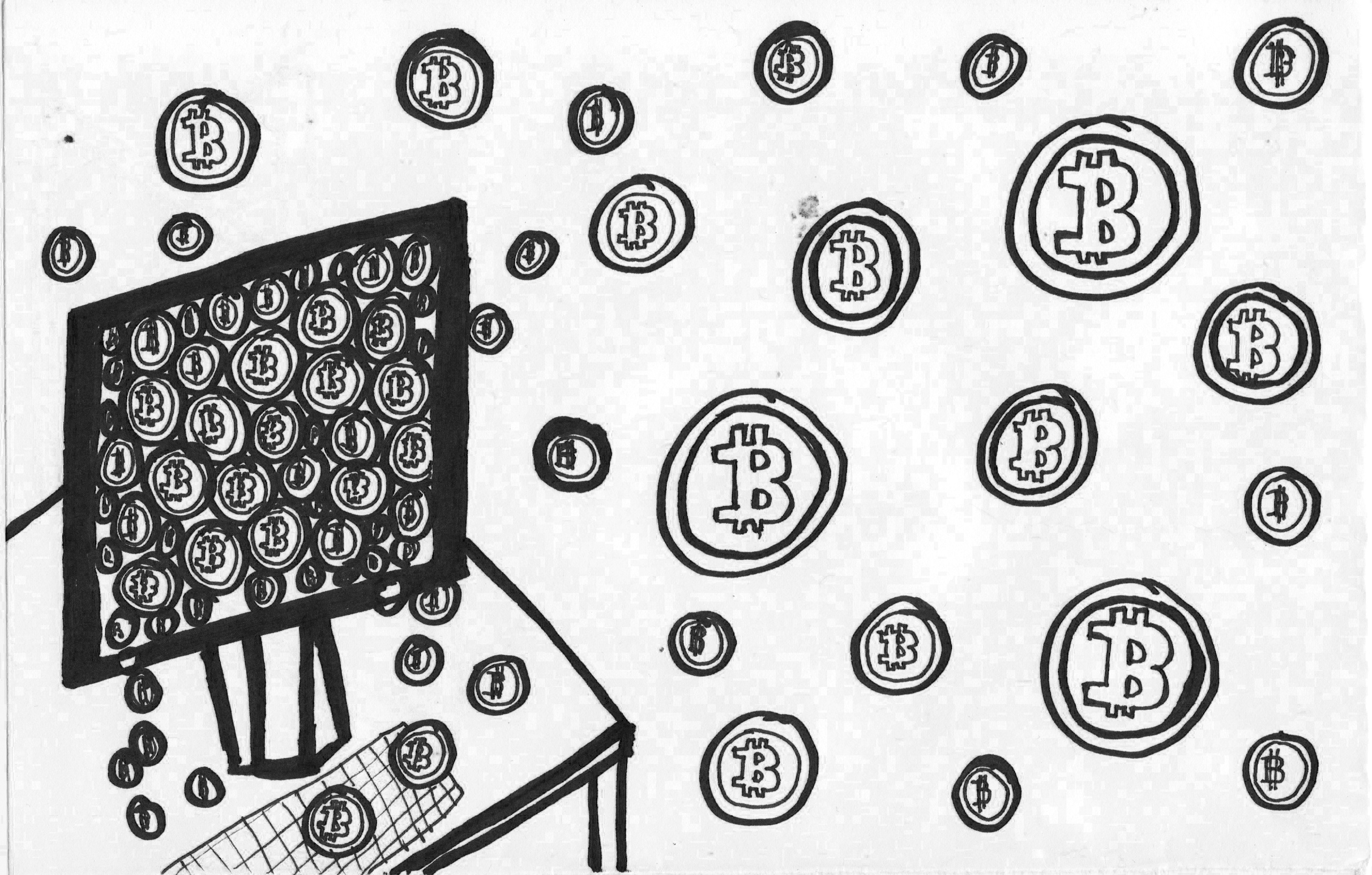There’s a lot of hype revolving around Bitcoin, the de-centralized virtual currency that has fueled illegal drug websites, gained over 300 dollars in value over a span of 15 days, and avoids regulation by any institution. Given its track record, Bitcoin is bound to instill a sense of mistrust in individuals who are not familiar with its workings.
Fear not. While Bitcoin might not have a Ben Bernanke, it already has set monetary rules of its own. While the price of the virtual currency is indeed set by the market, its supply is capped at 21 million Bitcoins. There are currently around 12 million in circulation. Estimates predict that Bitcoins will reach their maximum supply around 2033, which means that no more will be produced after that point. Ever.
Bitcoins are produced by people known as miners, who run complex computer programs in order to create block chains, which are lines of code that register every Bitcoin transaction. Using each Bitcoin’s unique cryptographic signatures, block chains ensure that a coin is not spent twice, nor reversed after a transaction. Because creating a successful block is hard work, miners are rewarded with Bitcoins after each successful creation of a chain and may also charge small fees for every transaction “logged” into their creation.
Given the appealing financial incentive, more miners are taking part in producing chain blocks. Simple laws of increasing competition ensure that the monetary supply is “released” or “mined” at a lower rate as time goes by, since extracting is more difficult now, signaling to the market that Bitcoins will display diminishing availability all the way until the currency reaches its full capacity. Bitcoin encourages the market to maintain and protect its own system without the need to bring in a regulating authority, which is revolutionary.
The ultimate goal of Bitcoin is to link currency with the modernization of the digital age. It’s every free-market libertarian’s ultimate fantasy: the ability to conduct unregulated, untaxed monetary transactions on a worldwide scale for small transaction costs. It has revolutionized peer-to-peer monetary transactions. Even Congress, having recently held its first-ever Senate hearing on the currency, can’t deny its influence.
Still, critics abound. Economists like Paul Krugman dismiss Bitcoin because it maintains a virtual gimmick that has no intrinsic value and is only valuable because people are willing to accept it as valuable—a sort of self-fulfilling prophecy. But, Krugman is forgetting that the dollar, too, lacks an intrinsic value. Why, then, does it have to be so different from Bitcoin? In fact, no one can guarantee that the dollar’s value won’t change. God forbid, can you imagine the implications of the U.S. government shutting down if Republicans and Democrats fail to agree on basic budgeting? On these points, the dollar and Bitcoin are hardly different.
The real disadvantages of Bitcoin include its propensity to be used in illicit online activities (since transactions are carried out instantaneously and can be very hard to trace) as well as being constantly subjected to hacking. A website known as the Silk Road was recently shut down by the FBI after they found that it hosted a network of international drug trade, with a history of over $1 billion in transactions and accounting for around 8 percent of the total worldwide Bitcoin trade.
Bitcoin has experienced its share of security breaches throughout its existence, but protective measures are being constantly improved. Bitcoins by themselves cannot be hacked, only the wallets in which they are can be targeted in order to cause an unwanted transfer of funds.
In the initial days of credit cards and Paypal, crashes and security scares were also present. Looking at how widespread these payment methods have become proves that rocky beginnings do not mean certain failure.
I will buy Bitcoins as soon as I find a way to do it. Price volatility doesn’t matter. The beauty of the system is that it will reduce transaction and remittance costs for any activity, thus eliminating the need for any financial intermediaries. This innovation will free us from reliance on greedy banks and credit card companies all over the world.
Bitcoin is not just a currency, it is an investment. As it gains more widespread use and legitimacy, its limited monetary supply will eventually mean prices will keep going up for it, if we all agree on its value. Bottom line, the more you and your neighbor believe in it, the richer you can become as an owner. Sure, you could say Bitcoin is an unstable bubble reminiscent of the 2008 financial crisis, but then again, aren’t all other investments valuable because we consider them so?







